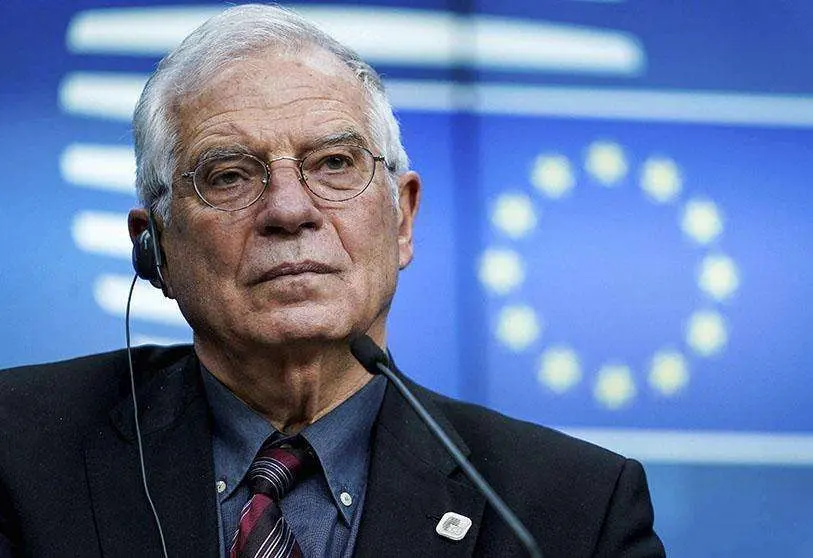Revolutionary Guard is left out of the new EU sanctions package

The Iranian government's crackdown on protests that have flooded the streets of Tehran since the death of Mahsa Amini has triggered a new wave of sanctions against Iranian officials and entities. This is the fourth package of sanctions agreed by Foreign Ministers, meeting this time in Brussels. Up to 37 Iranian officials and entities have been added to a list of asset freezes and visa bans in a move coordinated with the UK and US, which have stepped up their actions against the Ayatollah regime.
However, one of the calls made by the UK itself along with Germany to list the IRGC (Islamic Revolutionary Guard Corps) as a terrorist group has not come to fruition. According to EU High Representative Josep Borrell, the IRGC could not be added to the list of terrorist organisations without a prior judicial decision. "There are many interesting opinions on this, but it is something that cannot be decided without a court decision first," Borrell said on his arrival at the EU Council of Foreign Ministers.

"It has to be when a court in a member state issues a legal declaration, a specific condemnation, and then we work at a European level, but first there has to be a judicial decision," explained the former Spanish Foreign Minister. In this way, Germany and the Netherlands saw their request denied, following statements in which Borrell himself said that "you can't say that I consider you a terrorist because I don't like you". German Foreign Minister Annalena Baerbock called on the EU to "clarify" the legal issues involved in designating the Revolutionary Guards as a terrorist group.
The target of the new sanctions has focused on representatives of the Iranian government and parliament, as well as political and media figures. Although they cannot directly target the IRGC, sanctions have been applied against high-ranking members of the IRGC, such as Brigadier Generals Ahmad Kadem, Mohammad Nazar Azimi and Mohammad Karami, who are accused of being responsible for the brutality of the crackdown, as well as the killings of several protesters. Also among those affected by the sanctions package is the Minister of Sports and Youth, Hamid Sajjadi.

The new measures join those already imposed on more than 60 Iranian officials and entities, including the so-called morality police - whose dismantling was announced by the government in Tehran - IRGC commanders and the state media. British Foreign Secretary James Cleverly believes that 'those sanctioned today, from the judicial figures who use the death penalty for political purposes to the thugs who beat demonstrators in the streets, are at the heart of the regime's brutal crackdown on the Iranian people'.
The situation in Iran becomes more complex with each passing day. The protests against the dictatorship that has subjugated the population for more than four decades have come at a time when relations with the West were at a delicate point. The stalled talks on a new nuclear deal were straining ties with Tehran, which has continued to enrich uranium since the breakdown of the Joint Comprehensive Plan of Action (JCPOA) following the unilateral US exit in 2018. Thus, the sanctions against Iran are just one more sign that today's positions with the country headed by Ebrahim Raisi could not be further apart.










